What a Golden Rock you have!
15 August 2010….The last two days of our trip to Myanmar were all about a pilgrimage to one of the most revered sites in Myanmar. So with an open mind, strong legs and recharged camera we set off for the Golden Rock.
The Golden Rock is on the top of a mountain near the town of Kyaikhtyo (pronounced just like its spelled!) but because that’s a five hour drive from Yangon and we were in our driver Tutu’s clapped-out 25 year old car we knew it would be eventful. And it was.
As we headed north toward Bago the poor old Toyota kept coughing and coughing and stalling, sometimes at its full speed of 60kph. At one toll booth (which in itself is somewhat ironic given the state of even this national highway) the car finally gave up and Julie and I had to get out to push it through the turnstile, much to the amusement of the locals. The problem, according to an embarrassed Tutu, was dirty fuel. We had heard this complaint before, most of the petrol sold in litre bottles on the side of the road was of very poor quality and a bad batch could bring even a proud Toyota to its knees.
After some impressive tinkering under the bonnet we moved on, stopping at a Commonwealth War Cemetery. The grounds were beautifully kept, a peaceful oasis honouring the lost soldiers from the Commonwealth armies during the war. History tells us that eventually the British and their mostly Indian colleagues prevailed and stopped the western advance of the Japanese but at a huge loss. Over 27,000 allied soldiers never came home from Burma and it is said 200,000 Japanese met the same fate. The individual markers told the story, young men 20 or 22 years old, forever in a distant forgotten land.
We drove across the flat plains growing rice in flooded fields for as far as the eye can see. This was a beautiful endless scene, farmers in the broad cone hat, standing in knee deep water, tending their rice, working the field with their buffaloes, just like they have done for hundreds of years.
Buffaloes would have been a better transport bet for us. In Bago our mighty Toyota beast finally gave up the ghost and we wandered the intriguing local market for an hour while Tutu performed more magic under the bonnet. Then, miraculously, we were off again up into the foothills to Kyaikhtyo. With 30 other people, mostly locals, we jumped into an open air truck with wooden bench seats and held on for dear life as we wound up the steep switchbacks toward the Golden Rock.
The jungle was thick, the road steep, the truck grunting in first gear but eventually we made the end of the road. From there we walked in the stifling heat the last 1.5 km up the steep old road with its tight continuous switchbacks, carrying an overnight change of clothes. The road itself was an engineering feat but we proved our worth, especially when others paid locals who work as a team of four to carry the fat, lazy tourists up on reclining lounges.
The hard work was rewarded with a stroll through this massive temple striding the steep narrow ridge on the top of the mountain. And we fulfilled our pilgrimage by reaching the Golden Rock, literally a huge round rock delicately balanced on the edge of the ledge as if it could roll off at the next application of gold leaf from a reverent pilgrim. But we can report it survived the afternoon and stunning foggy sunset views, very moving stuff.
We stayed at the only privately owned hotel on the top (would you believe, the Mountain Top Hotel) and our room was perched on the cliff in prime position for a magnificent sunrise over the valley below. Of course we woke up to heavy fog and rain and that’s how we started our walk down – with raincoats and strong resolve.
But we didn’t jump on the truck at the road terminus, no siree, we kept walking down the steep road, made trickier in the wet conditions (frequently broken by a breakout of hot sun and a tripling of the humidity) and so we walked the entire 14 km down to the village below, past waterfalls, through the thick jungle, enjoying the peaceful silence, straining our thigh muscles and relieved at the bottom we didn’t encounter any tigers or snakes.
Back to Tutu and our trusty Toyota for the beautiful drive back to Yangon. But our transport wasn’t done yet, still stalling occasionally (I thought he said he fixed it), still with absolutely no springs or compression, still infested with ants crawling on us all the time, still with windows that go down but don’t go up, yes all that but we called it home. The views of these endless green rice fields and smiling locals were enough to fill the heart regardless of what was in the tank.
And so our adventure to Myanmar ended, full of new experiences and memories that will last a life time. We brought home a couple of minaret puppets for which Myanmar is famous, some beautiful lacquerware, a pair of old wooden neck braces for the oxen (oh ya, we had to have them), longhis for the men, sarongs for the women and about 2,500 photos. But mostly we brought home a much better appreciation for this mysterious land.
So do you call it Burma or Myanmar? Most of the west still refers to it as Burma, which is the old British name, mainly because nobody wants to agree with anything the military government does. Fair enough but what we learned from talking to the people is that the British used the name Burma as it referred to the dominant indigenous tribe, the Bamar, but in 1989 the government reverted to the ancient name for the land – Myanmar. And to our questions of what do you call the language (based on that premise, surely not Burmese) the awkward answer would usually be ‘the Myanmar language’. So you could have Burmese food and meet Burmese people but they are just one component of a much broader and more complex society.
And did we provide support, funding and comfort to the government? We worried about this constantly and sought the views of everyone we felt we could get a fair response from. The people we encountered in the hotels, restaurants, shops and stalls were very grateful for our presence and the money we spent. Obviously they don’t get many tourists so we came to the view that we did make a small difference to some people.
The Myanmar Tourism Ministry recently announced that in 2009 a total of 600,000 tourists came to Myanmar but only 360,000 stayed for more than one night (most come across the border from Thailand to renew their Thai visitors visa). According to the Tourism Ministry the visitors contributed only 1.5% of the government’s overall revenues. The way we interpret this is that our visit had absolutely no impact on the government but did help the local people feed their families and provide for their basic needs.
And amongst all this the overwhelming feeling we got from our visit was that the people of Myanmar are strong hard working honest people who generally ride the minuscule wave that the government provides them without complaint and have adopted to a very simple, slow life style. Their opportunities are very limited, their future may be somewhat bleak and their focus is mostly on just day to day survival but we came to believe that if they are ever given the same chance of some of their Asian neighbours they will grow and prosper with the rest of Asian society. Let’s all hope they get their chance soon.
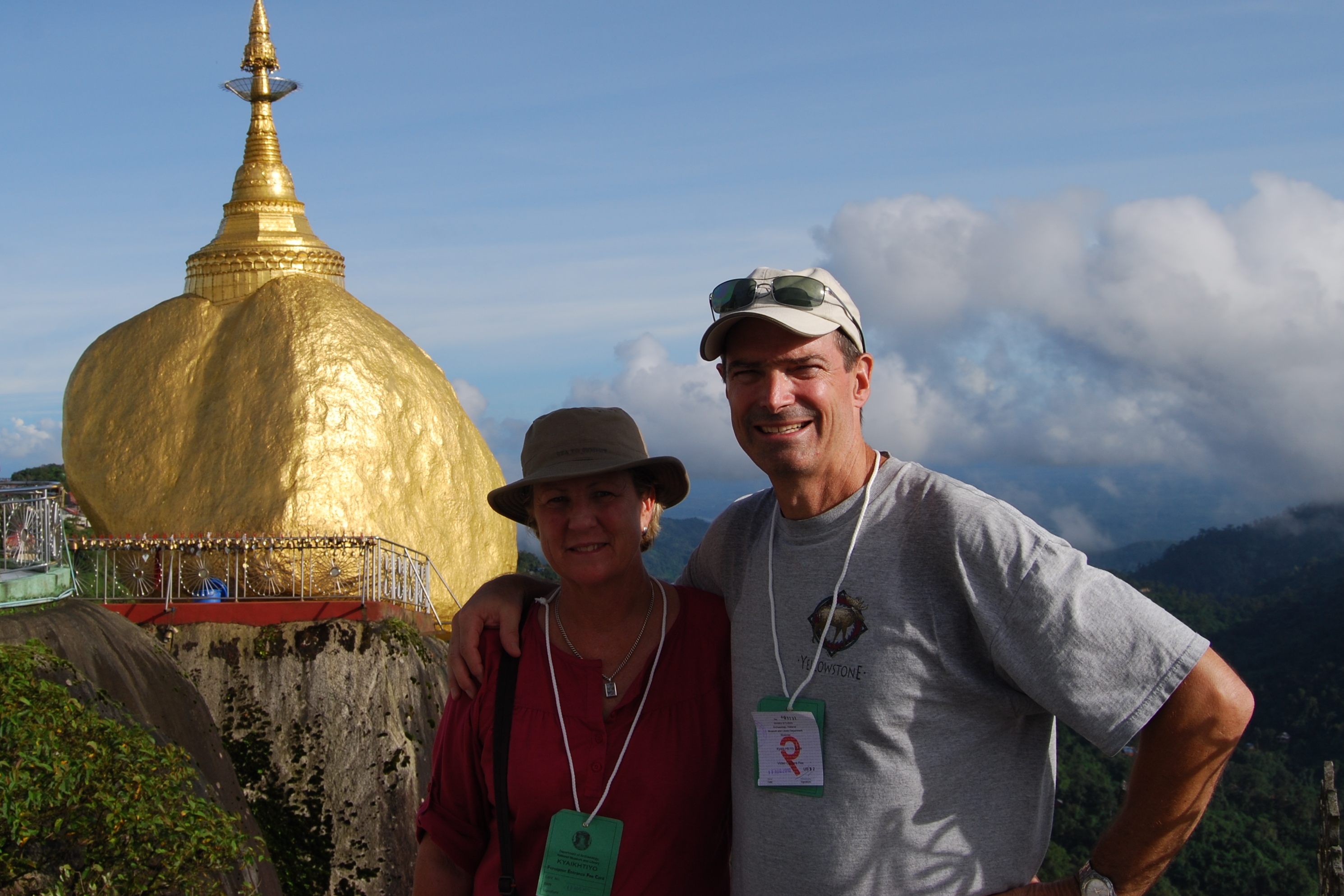
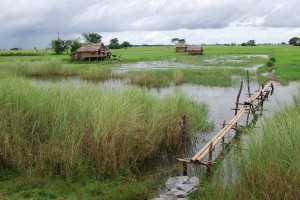
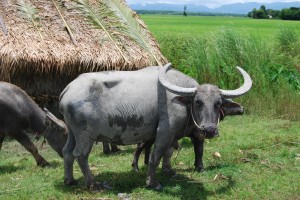
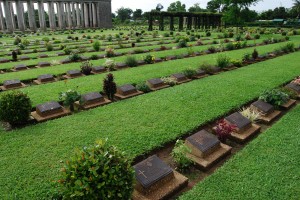
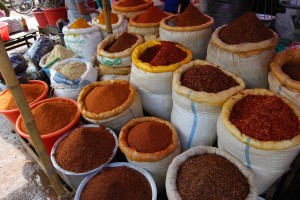
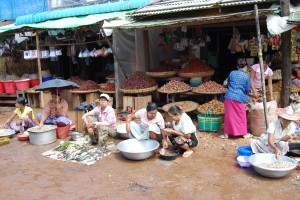
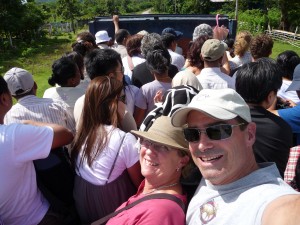
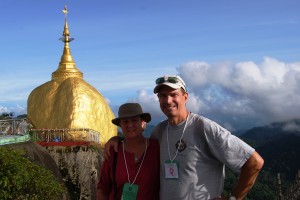
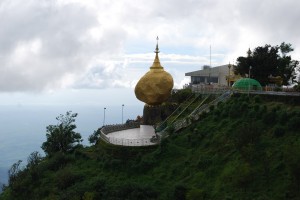
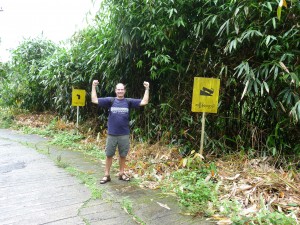
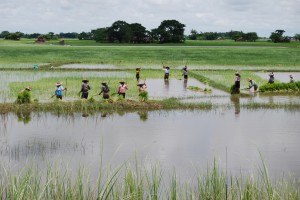
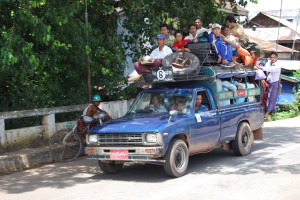
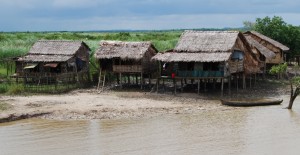
Comments
What a Golden Rock you have! — No Comments
HTML tags allowed in your comment: <a href="" title=""> <abbr title=""> <acronym title=""> <b> <blockquote cite=""> <cite> <code> <del datetime=""> <em> <i> <q cite=""> <s> <strike> <strong>